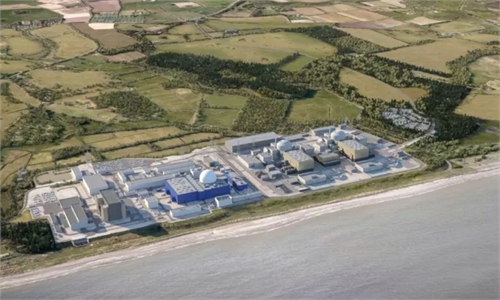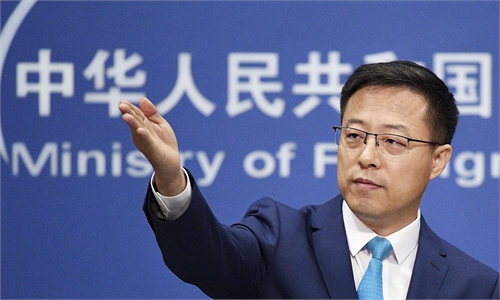GT Voice: UK's economic strength weakens further as investment climate deteriorates

Illustration: Liu Rui/GT
With the baffling move taken by the British government to cite the so-called national security as a reason to leave the country's national interests and commercial credibility behind, it seems that UK's economic power is weakening further as its domestic investment climate deteriorates.A committee of British members of parliament (MPs) has urged the British government to act fast and secure the future of a Newport microchip manufacturer, British news media South Wales Argus reported on Monday. The committee warned the UK was "missing out" on semiconductor inward investment as international competition in the sector heats up.
While these MPs appear to care about the future of the UK's semiconductor industry and are looking forward to attracting investment in this regard, they seem to miss the real crux of the issue, that is, it is the reputation of the country's investment climate that is becoming disturbing and needs to be redeemed as soon as possible.
The report came only a few days after the UK government took a U-turn by requiring Chinese electronics company Wingtech Technology Co's Netherlands-based subsidiary Nexperia to sell at least 86 percent of its shares in its semiconductor wafer factory in South Wales, known as Newport Wafer Fab (NWF), citing the so-called national security risks. Nexperia completed the acquisition of NWF in July 2021 and saved NWF from bankruptcy with the investment for equipment upgrading.
If Nexperia was forced to withdraw from NWF, it is hard to imagine whether there will be any company that is willing or has the capital to make such a high-risk investment in NWF or the UK's semiconductor sector in the future.
In addition to overturning investment in the semiconductor sector, news came on Tuesday that the UK has removed China General Nuclear Power Corp from the construction of the new Sizewell C nuclear power station.
Both the NWF acquisition and the Sizewell C nuclear power projects had been previously subject to several rounds of national security review and evaluation by the British government. It is apparently no coincidence that the British government retrospectively blocked two Chinese investments in two weeks, which will set a daunting precedent for global investors. No one will doubt that British politicians' radical attitude toward China is a major reason behind the government intervention, with influence from Washington playing a role as well.
However, what those anti-China politicians have failed to see is that the intervention based on ideological bias and geopolitical calculations is extremely poisonous for British businesses in that the business implications behind the political moves may cut their lifeline of foreign investment.
If anything, retrospective government intervention is rare when it comes to commercial deals. If the British government uses such intervention as a conventional weapon for its treatment of foreign investment, then all of the previous investments are no longer safe because they are at risk of being overthrown in view of changes at the geopolitical level. The scenario is disturbing enough for international investors to reshape their assessment and judgment about the UK market.
Given the vagueness and confidentiality of the so-called national security, it is highly possible that the UK will become a black hole for investment, intimidating investment from non-allied economies. And this doesn't bode well for an economy already mired in growing recession risks.
It should be noted that both the US and the EU are actively trying to lure industrial investment with various subsidies and preferential taxes, so as to create more manufacturing jobs and boost their economies. Against the backdrop of the rising protectionism, it is hard for the UK to hold any advantageous position, given its small market size, high labor costs, shortage of professional talents, and limited incentives for foreign investment.
Britain could have used investment from China and other emerging economies to revive some of its manufacturing sector and retain part of its position in the global industrial chain, but such opportunity has been completely lost after it showed the world how degraded and unreliable the British Empire can be. The possibility of the UK economy falling sharply at some point is growing fast. Britain's great fall has begun, and protectionism will only accelerate the process.



